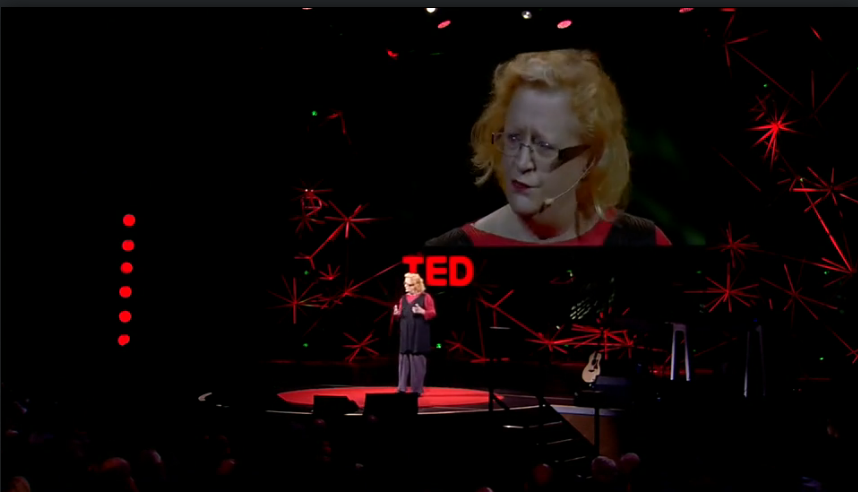So what does that kind of constructive conflict require?
那么这种建设性的矛盾要求什么呢?
Well, first of all, it requires that we find people who are very different from ourselves.
首先呢,它需要我们去找到十分不同的人们。
That means we have to resist the neurobiological drive, which means that we really prefer people mostly like ourselves,
这意味着我们必须抗拒精神上的推动,那就是我们更喜欢像我们的人们,
and it means we have to seek out people with different backgrounds, different disciplines, different ways of thinking and different experience, and find ways to engage with them.
这意味着我们必须寻找用不同背景,不同训练,不同方法去思考以及具有不同经验的人们,而且还要去想办法与他们交流。
That requires a lot of patience and a lot of energy.
这需要很多热情和能量。
And the more I've thought about this, the more I think, really, that that's a kind of love.
我想这一点想的越多,真的,我觉得这是一种爱。
Because you simply won't commit that kind of energy and time if you don't really care.
因为如果你不在乎的话,你不可能付出那么多能量的。

And it also means that we have to be prepared to change our minds.
这还意味着我们必须准备好去改变我们的想法
Alice's daughter told me that every time Alice went head-to-head with a fellow scientist, they made her think and think and think again.
Alice的女儿告诉我每次Alice去和一个同事科学家会面,她都会一遍一遍地思考。
"My mother," she said, "My mother didn't enjoy a fight, but she was really good at them."
“我的母亲”,她说,“我的母亲不喜欢争吵,但是她却很擅长。”
So it's one thing to do that in a one-to-one relationship.
因此这在一对一的关系中是一个方面。
But it strikes me that the biggest problems we face, many of the biggest disasters that we've experienced, mostly haven't come from individuals,
但这使我想到那些我们面对过的最大难题,经历过的最严重灾难,大多都不是由个人引起的,
they've come from organizations, some of them bigger than countries, many of them capable of affecting hundreds, thousands, even millions of lives.
而是由组织引起的,有些比国家还大,大多数都有影响上百人的能力,甚至上千人,上百万人。












